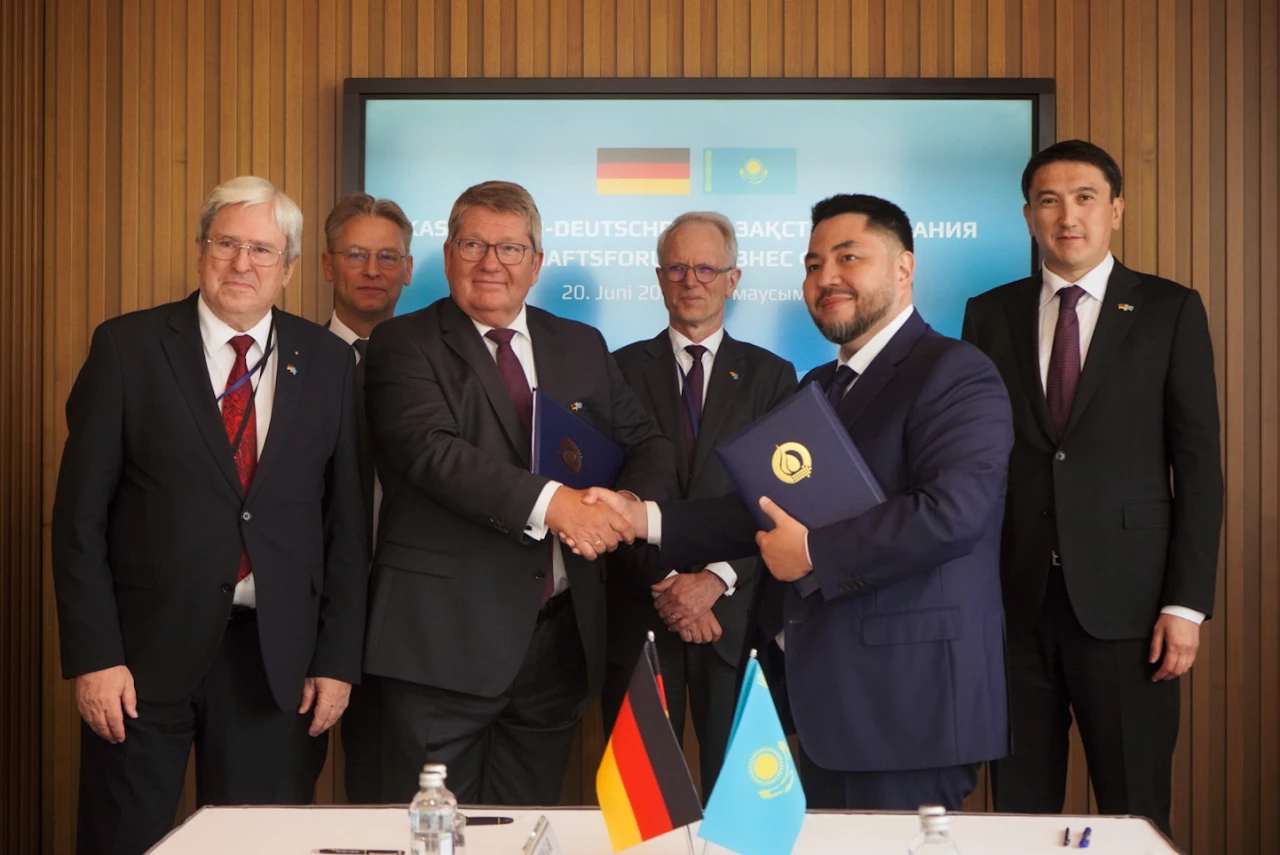The flow of oil from Kazakhstan to European markets is set to increase this year following an agreement reached on Tuesday between KazMunayGas and Rosneft Deutschland, which operates in Germany.
“On behalf of KMG, I want to express our interest in continuing and increasing oil supplies to Germany and thank our partners for the productive cooperation,” KazMunayGas Chairman Magzum Mirzagaliyev said during the signing ceremony.
The agreement involves KazMunayGas delivering oil to Rosneft Deutschland GmbH, a subsidiary of the Russian state-owned Rosneft, which was placed under the control of the Germany's Federal Network Agency in September 2022. Rosneft Deutschland will further facilitate its onward supply to the PCK Refinery located in Schwedt, Brandenburg.
According to the agreement, a monthly supply of 100,000 tons of oil from Kazakhstan’s Karachaganak field will be provided until the end of 2023, ensuring a minimum total volume of 890,000 tons for Germany. To achieve this, the oil is transported through the Druzhba pipeline, which passes through Russia, Belarus, and Poland before reaching its destination in Germany. The Schwedt refinery serves as the final point of processing for the Kazakh oil.
Meanwhile, Germany has expressed its desire to explore additional oil deliveries from other Kazakh oil companies. In response to a request made by the German government in 2022, Kazakhstan began supplying Kazakh oil through the Druzhba pipeline to the PCK Refinery. Since then, oil shipments have steadily increased, with volumes reaching 190,000 tons between February and May 2023. An additional 100,000 tons is scheduled for delivery in June. Notably, the Druzhba pipeline is renowned as one of the world’s longest oil pipelines, spanning from Russia to several destinations in Eastern and Central Europe.
Kazakhstan’s emergence as a key player in the European oil market stems from its position as the third-largest oil producer in the Caspian region, following Russia and Iran. With over 70 percent of its oil exports directed to the European Union (EU), Kazakhstan already stands as the bloc’s third-largest non-OPEC supplier. The EU, characterized by limited domestic resources, considers the Kazakh oil supplies highly lucrative. Additionally, amid partial embargoes and price caps on Russian oil, the EU anticipates an uptick in Kazakh oil volumes.
The quest to reduce dependency on Russian oil and gas gained momentum among European countries after Russia’s invasion of Ukraine in February 2022. In response, EU leaders implemented strict sanctions, including a two-thirds embargo on Russian oil supplies to the bloc. Importation of Russian oil via sea ceased in late 2022, and a ban on refined oil products followed in February 2023. The United States also halted its imports of Russian oil. European leaders are actively pursuing strategies to limit future imports by promoting conservation efforts, exploring alternative sources, and accelerating the transition to renewable energy, such as wind and solar power.
Energy-rich Kazakhstan currently exports 67 million tons of oil annually to Europe through Russia, primarily via the Caspian Pipeline Consortium (CPC) to Novorossiysk, enabling access to global markets. Over two-thirds of Kazakhstan’s oil exports are transported through the CPC pipeline.







 President Ilham Aliyev shed light on the evolving contours of the peace process with Armenia during an international conference in Baku this week. ...
President Ilham Aliyev shed light on the evolving contours of the peace process with Armenia during an international conference in Baku this week. ...
 Azerbaijan and Armenia started the process of demarcation of their border on Tuesday, with the installation of the first border markers based on ge...
Azerbaijan and Armenia started the process of demarcation of their border on Tuesday, with the installation of the first border markers based on ge...
 President Aliyev emphasized the critical role of the North-South Transport Corridor in fostering transport cooperation between Azerbaijan and Russi...
President Aliyev emphasized the critical role of the North-South Transport Corridor in fostering transport cooperation between Azerbaijan and Russi...
 Iran and Pakistan have signed eight cooperation documents in various fields, and agreed to strengthen ties to fight terrorism in the region.
Iran and Pakistan have signed eight cooperation documents in various fields, and agreed to strengthen ties to fight terrorism in the region.
 As the conflict between Ukraine and Russia escalates, the strategic importance of Kharkiv, Ukraine's second-largest city, has come sharply into focus.
As the conflict between Ukraine and Russia escalates, the strategic importance of Kharkiv, Ukraine's second-largest city, has come sharply into focus.



